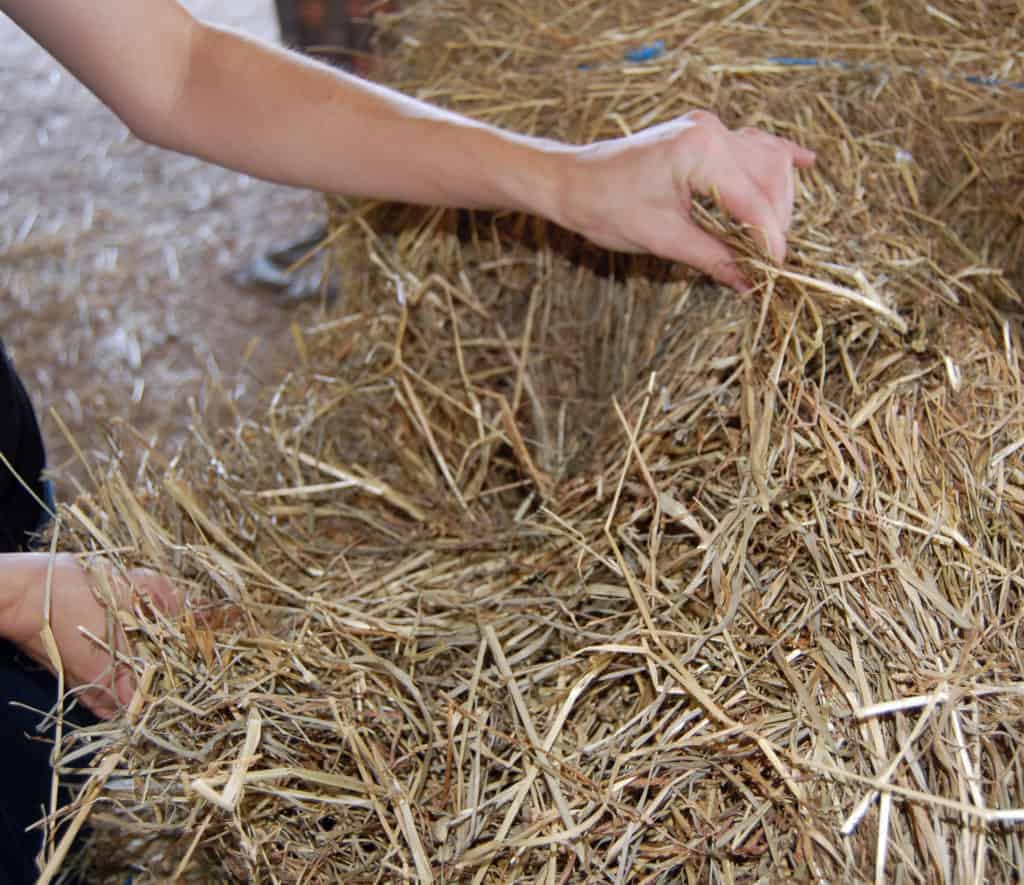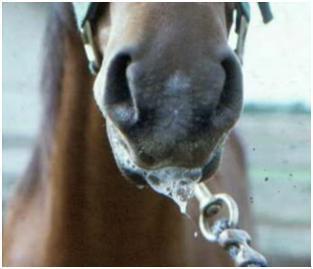Alltech Launches Five-Point Mycotoxin Management Program
Exposure to certain mycotoxins can cause a number of serious health problems for horses, including death.
Exposure to certain mycotoxins can cause a number of serious health problems for horses, including death.

Horse owners might be concerned about the potential for an unsafe feed supply this year due to the drought.

Mycotoxin exposure in horses, caused by feed contaminated with fungi, can be dangerous or fatal.
Five horses in Reddington, Ind., are dead after contracting the botulism toxin from an “unknown food source.”
Toxic feed contaminants produced by molds, known as mycotoxins, are a risk to livestock, including horses.
The recalled Kountry Buffet 14% horse feed could contain monensin sodium, which can be fatal for horses.
Forensic scientists solved the mystery of what killed a large portion the the wild mustang herd in southern Nevada using a technique called stable isotope ratio mass spectrometry. In July 2007, 71 horses of the 250-head herd of wild horses were…

Botulism is largely avoidable, but immediate veterinary treatment could help save an affected horse’s life.
Farmers across the Midwest struggled last year to harvest their crops in what turned out to be an unseasonably wet autumn. These conditions led to reports of widespread mold in this year’s corn crop. Moldy corn is a hazard for all species o
Recent reported crop losses in North Carolina and several other states are linked to certain broad leaf herbicides containing aminopyralid, clopyralid, and picloram, according to researchers. In North Carolina, people with gardens and organic
Horses might serve as good management tools for pastures moderately polluted by trace elements, according to Spanish researchers. And provided the animals receive adequate, systematic monitoring through biological sampling, they can be kept on
Composting is one option for disposing of a horse carcass after euthanasia. Researchers at West Texas A&M recently conducted a study to determine if residues of sodium pentobarbital might remain in compost as a potential environmental hazard
As horse owners put together a disaster plan and cope with difficult situations, one of the first concerns should be minimizing changes in feed management.
Aluminum phosphide is an indoor fumigant used to kill insects in most, if not all, of the stored grains we and our horses are exposed to. Like most pesticides, it can cause major problems in unintended species when used incorrectly.
A mystery toxin killed a fifth horse in western North Carolina in November. Veterinarians now suspect this case might be due to the same substance that caused the death of four other horses earlier that month.
The fifth horse was
Standards help to ensure, manage, and effectively monitor risk of use for products and ingredients for horses.
Stay on top of the most recent Horse Health news with
"*" indicates required fields